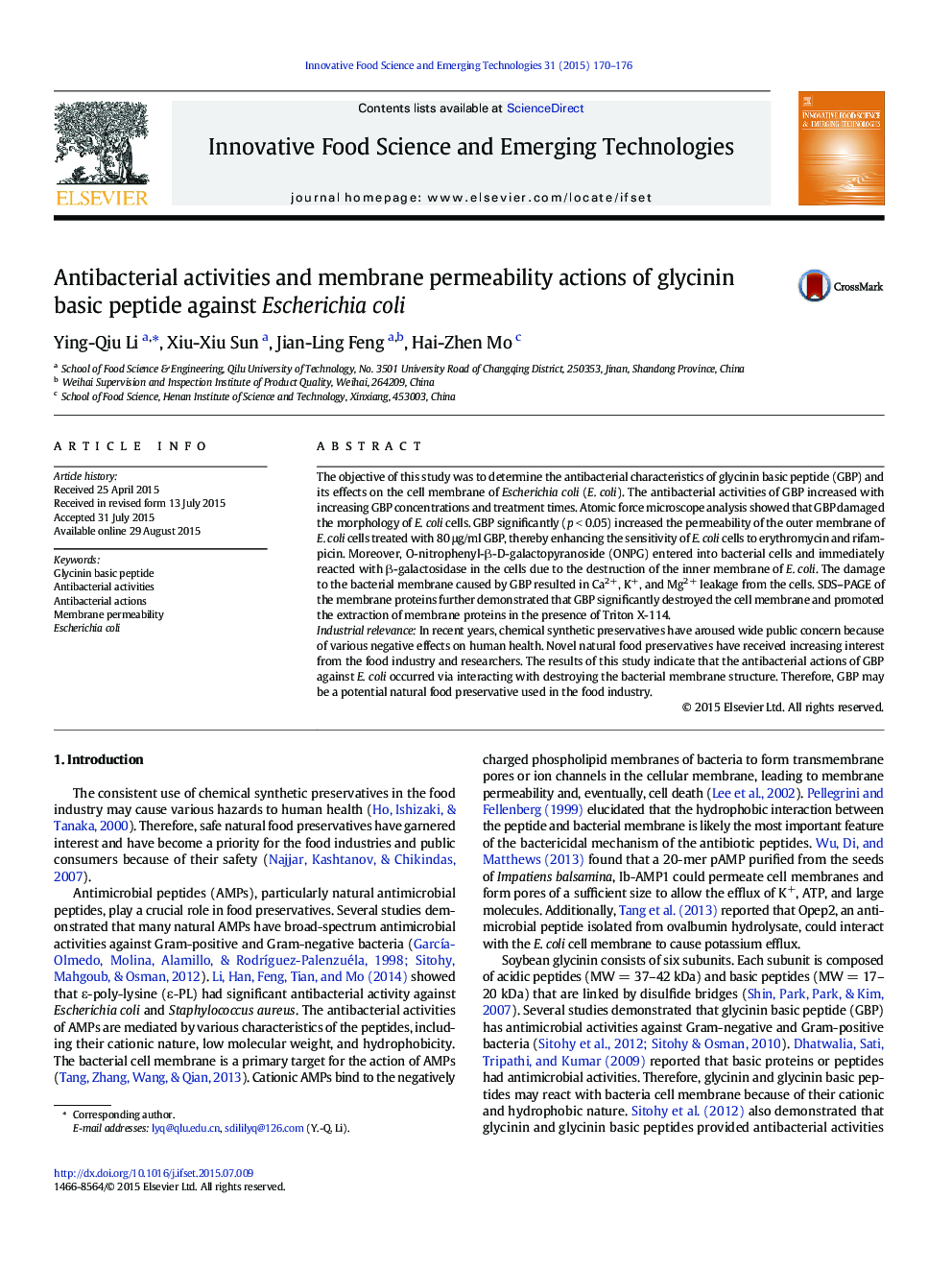| Article ID | Journal | Published Year | Pages | File Type |
|---|---|---|---|---|
| 2086296 | Innovative Food Science & Emerging Technologies | 2015 | 7 Pages |
•Glycinin basic peptide (GBP) exhibited strong antibacterial activities against Escherichia coli (E. coli).•Atomic force microscopy (AFM) revealed GBP could destroy E. coli cells, to lead to eventually cell death.•The increase of leakage of Ca2 +, K+, and Mg2 + of E. coli cells suggested GBP treatment resulted in the damage to E. coli cells.•The increase of permeability of outer membrane and inner membrane indicated that GBP could destroy structure of E. coli cells membrane.•SDS–PAGE of membrane proteins demonstrated further that GBP could destroy cell membrane and promote the extraction content of membrane protein in the presence of triton X-114.
The objective of this study was to determine the antibacterial characteristics of glycinin basic peptide (GBP) and its effects on the cell membrane of Escherichia coli (E. coli). The antibacterial activities of GBP increased with increasing GBP concentrations and treatment times. Atomic force microscope analysis showed that GBP damaged the morphology of E. coli cells. GBP significantly (p < 0.05) increased the permeability of the outer membrane of E. coli cells treated with 80 μg/ml GBP, thereby enhancing the sensitivity of E. coli cells to erythromycin and rifampicin. Moreover, O-nitrophenyl-β-D-galactopyranoside (ONPG) entered into bacterial cells and immediately reacted with β-galactosidase in the cells due to the destruction of the inner membrane of E. coli. The damage to the bacterial membrane caused by GBP resulted in Ca2 +, K+, and Mg2 + leakage from the cells. SDS–PAGE of the membrane proteins further demonstrated that GBP significantly destroyed the cell membrane and promoted the extraction of membrane proteins in the presence of Triton X-114.Industrial relevanceIn recent years, chemical synthetic preservatives have aroused wide public concern because of various negative effects on human health. Novel natural food preservatives have received increasing interest from the food industry and researchers. The results of this study indicate that the antibacterial actions of GBP against E. coli occurred via interacting with destroying the bacterial membrane structure. Therefore, GBP may be a potential natural food preservative used in the food industry.
